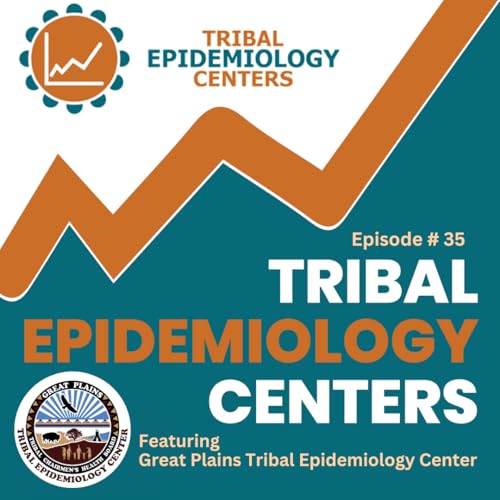Welcome to the Tribal Epidemiology Centers Podcast. Tribal Epidemiology Centers (commonly referred to as TECs) are housed in organizations that serve American Indian/Alaska Native tribal and urban communities.
Currently, there are 12 Tribal Epidemiology Centers (TECs) across the US that are focused on improving the health of American Indians and Alaska Natives throughout the United States.
Featured TEC:
The Southern Plains Tribal Health Board (SPTHB) is a non-profit organization based in Oklahoma City, Oklahoma. The health board was established in 1972 to provide a unified voice on tribal public health needs and policy for the 44 federally recognized tribes located in the states of Kansas, Oklahoma, and Texas. Board membership includes representatives from the 12 service units in the Indian Health Service (IHS) Oklahoma Area.
The SPTHB works closely with federal, state, tribal, and local partners by offering culturally-competent approaches to improve American Indian health outcomes. In 45 years of serving our Tribal Nations, the SPTHB has given over $80 million grant dollars to our tribal communities through community health profiles, emergency management plans, data collection, education, substance abuse and suicide prevention programs, as well as supporting tribal public health initiatives across the United States.
The SPTHB serves as a liaison between the Tribal Nations we serve and the National Indian Health Board (NIHB), who works closely with our U.S. Legislators in Washington, D.C., advocating for American Indian health
The Oklahoma Area Tribal Epidemiology Center (OKTEC) is a division under the SPTHB. The OKTEC is one of twelve Tribal Epidemiology Centers located across the United States and was established in 2005 through core funding received from the Indian Health Service. The OKTEC coverage area includes Kansas, Oklahoma, and Texas and serves the 44 federally recognized tribes in that area. As a public health program, the OKTEC works with area Tribes, state agencies, tribal organizations, academic institutions, non-profits, and many other agencies to provide a wide range of resources to those we serve. OKTEC stakeholders also make up the Advisory Council, which provide the OKTEC with relevant and timely feedback, recommendations, and program guidance.
Mission:
To improve the health of American Indian/Alaska Natives in Kansas, Oklahoma and Texas, by providing public health services in epidemiology, data management, data analysis, training, health promotion/disease prevention, and research through outreach and creative partnerships.
Links
Remember that you can always visit TribalEpiCenters.org to learn more about all of the TECs, including career, internships, and other employment opportunities.
You can also visit the Oklahoma Area Tribal Epidemiology Center (OKTEC) website.
 30 m
30 m 23 m
23 m 33 m
33 m Dec 11 202532 m
Dec 11 202532 m 39 m
39 m Dec 25 202432 m
Dec 25 202432 m 21 m
21 m Dec 11 202432 m
Dec 11 202432 m
